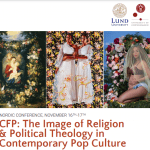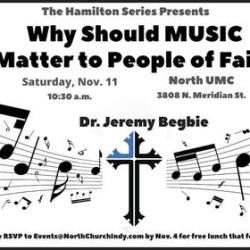Having wrapped up a number of other writing projects, I return my attention to two that lie at the intersection of religion and music: the Bible and music textbook and the book on theology and progressive rock. For a brief moment I wondered whether I still had anything to say on the topic.
Then I listened again. To Genesis, Rush, and ELP. Songs incredibly familiar yet always invigorating to hear again.
I listened to interviews as the musicians whose work I admire spoke of their motivations and experiences–or neglected to reveal anything related to my constant questions about the influence of the Bible, classical mythology, and contemporary concerns on their engagement with matters that are either profoundly theological or at least intersect with theology.
And I listened to Neal Morse’s latest album. Morse is one of the key figures in the current progressive rock scene, drawing heavily on the classic roots of the genre and yet always doing so in his own signature style and in a manner that is recognizably his.
So what do I make of the new album? I’ve dabbled a bit in the writing of historical fiction related to the Bible recently, and had ideas for musical explorations of some of the stories, often in ways that are subversive, almost amounting to what might be placed in the genre of “alternative history.”
Morse, on his album Sola Gratia, follows his exploration of the story of Martin Luther with an attempt to get inside the head of Paul the Apostle, beginning before he became a Christian. There are always risks in such an endeavor. Yet there is also much interesting potential. Morse’s lyrics reflecting the pre-Christian Saul’s outlook came across as preachy even as they are preaching from a stance that I am supposed to resist and distance myself from. This makes for a fascinating effect and impact, theologically. What does it mean if Saul the Pharisee sounds like the classic examples of conservative Christian preaching at its best or worst depending on whether you are a fan or detractor?
The album’s feel shifts dramatically, musically and lyrically, as Saul finds himself rethinking his earlier stance even as he insists that “I will never change my mind.” This resonates with my own experience of dogmatism in general and with thinking about Paul in relation to the broader topic of religious conversion. Saul’s turnaround is usually depicted, like so many others, as having no precursors or premonitions. This is done with the intention of portraying it as something explicable only in terms of divine intervention and not involving anything human or psychological. Yet as those of us who have had profound religious experiences know, however much we initially resist the suggestion that our experience was “psychological,” insisting that it was purely “spiritual,” human life, including our spirituality and religiosity, does not stay in any of the categories we try to impose. Saul is still dogmatic and yet haunted. He might not have recognized it at the time. But how would he have seen it with the benefit of hindsight? As Saul sings about the potential of one’s opponents to be “seemingly sincere,” the Christian looks at the opponent of their faith looking at them with a critical gaze, soon to change his mind, but also asking us to consider whether we too might not be seemingly sincere, persecuting others while being misguided ourselves. The final track has a feel that is reminiscent of contemporary Christian music and so at once invites the listener steeped in that genre to relate to Paul at the end of his journey, and to connect their faith with Paul’s journey, and yet at the same time to notice the process that led there more than many Christian worshippers tend to. Christian faith does not simply drop down from the sky, it emerges out of historical and human processes, including the life of Paul. The final track, having seemed to settle into the genre of the worship song, returns to the cadences of prog, interweaving the two, creating an experience that is simultaneously one of culmination and one that unsettles. The ending is calm and yet points onwards as though it could easily have continued and its unfinished story is one that we ourselves must (or at least are invited to) complete.
This is my take on the musical and lyrical journey as a whole: The album intentionally alienates the listener stylistically and lyrically only to turn with a prophetic finger in its second half and say, “thou art the man,” or more inclusively and more appropriately contemporary, “you’re the one I’m talking about.” (This is of course my opinion, my impression as listener. I don’t know whether I’ll ever get the chance to ask Morse if my impression corresponds to his intentions.) As an album about Paul the exploration of his life and experience is fascinating. What is perhaps most unexpected, however, is that the album managed to also be existentially and spiritually challenging. Even music that is theologically interesting does not always manage that. This album does, at least for me on my first listen to it. Give it a try and let me know what your experience of it is.
Here are some other perspectives on Morse’s latest album and his work more generally:
Here is an interview with Neal Morse about this album that emerged out of the context of pandemic lockdown:













